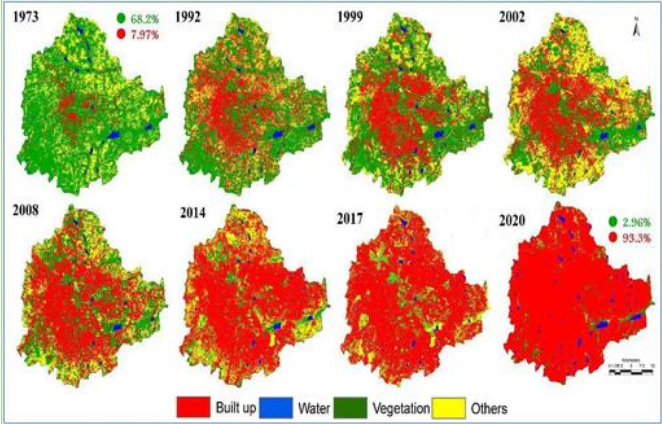Once hailed as the “Land of a Thousand Lakes,” Bengaluru, the bustling city in Karnataka, is now grappling with a severe water shortage. The irony is striking: the same lakes that once nurtured this city now lie parched, victims of neglect and rapid urbanization. Let’s delve into the fascinating history of Bengaluru’s cascading lakes and how they transformed from lifelines to forgotten relics.
Bengaluru- The Origin
In the late 18th century, a British Captain, tasked with finding an alternative route between Madras and Seringapatam, stumbled upon Bengaluru during his travels. His discovery painted a picture of a city adorned with countless lakes, earning it the moniker “The Land of a Thousand Lakes.”
Fast forward to the present, Bengaluru’s once-thriving lakes are a shadow of their former glory. Of the thousand lakes that once adorned the landscape, only around 400 remain in the metropolitan region. Some reports even suggest that this number has dwindled to a mere 200. What’s more alarming is that out of these, only 17 are considered “good lakes” according to the city’s civic body.
The decline of these lakes mirrors the city’s growth trajectory. Historically, Bengaluru’s kings and kingdoms constructed lakes and freshwater tanks to combat the region’s scarce rainfall and hilly terrain. These self-sustaining water bodies served as crucial sources of water for both domestic and agricultural purposes during the dry summer months.
The credit for Bengaluru’s cascading lakes goes to Kempe Gowda, the visionary founder of the city in the 16th century. Under his patronage, a network of interconnected lakes was created, ingeniously channeling rainwater from higher elevations to lower ones through intricate canal systems. This efficient water management system not only ensured a steady water supply but also supported agriculture and livelihoods for generations.
Water Crisis in Bengaluru gets worse
However, Bengaluru’s rapid urbanization and unchecked population growth sounded the death knell for its cascading lakes. Encroachments, pollution, and neglect gradually choked these vital water arteries, leading to their demise.
Today, as Bengaluru grapples with acute water shortages, it’s essential to reflect on the legacy of its lost lakes. Had the city prioritized the preservation of its water bodies, the current water crisis might have been averted. As we navigate the challenges of urbanization, let’s not forget the invaluable lessons that lie beneath the surface of Bengaluru’s once-thriving lakes.

The change in land use in Bengaluru between 1973 and 2020. (Image:
Comptroller and Auditor General of India report)
Source: India Today
This article is for informative purpose only!